- On Thursday, 19th August 2021, the National Electricity Energy Regulator of South Africa commences public hearings for generation licence applications under the so-called emergency Risk Mitigation Independent Power Producer Procurement (RMIPPP) programme conducted by the IPP Office of the Department of Mineral Resources and Energy (DMRE).
The RMIPPP programme comprises eleven projects totaling 1996 MW. Of this, some 1220 MW, or 60%, is made up of three floating power plants (or “powerships”) and associated floating storage and regasification units (FSRUs) from Turkish company Karpowership. The balance comprises eight projects, ranging from 75 MW to 200 MW, incorporating various combinations of wind, solar photo-voltaic (PV), battery energy storage and diesel/gas engines.
The public hearings commence amidst growing opposition to the three Karpowership projects, including a substantial submission on Friday 13 August 2021 by the Organisation Undoing Tax Abuse (OUTA), in terms of the Regulator’s call for comment and response to the licence applications by the public and other affected stakeholders.
The public hearings come about three weeks after the IPP Office extended the “non-negotiable” deadline of 31 July 2021 for financial closure of these projects stated by Minister Mantashe on 21 March 2021 when announcing the first tranche of preferred bidders for the RMIPPP programme.
The DMRE says that that it extended the REIPPP programme’s commercial closing date to 30 September 2021 to allow for finalisation of regulatory processes, including Eskom board approval to conclude power purchase agreements (PPAs) with the successful bidders, and related approvals in terms of the Public Finance Management Act (PFMA).
The DMRE further states that the extension for financial closure was not based on the state of readiness of any of the preferred bidder projects, but rather on the lack of readiness by Government, and by Eskom as the buyer of the electricity, to conclude contractual agreements with the preferred bidder projects.
However, it has become increasingly clear from OUTA’s submission to Nersa that the three Karpowership projects, which would see the powerships and their associated FSRUs anchored in sensitive ecological areas of Richards Bay, Coega and Saldanha Bay for 20 years, are themselves far from ready to achieve financial closure.
Nersa argues convincingly that there is, in fact, every likelihood that the date for financial closure of the Karpowership projects will be extended further in due course, well beyond the revised deadline date. Indeed, says OUTA, it is quite likely that financial closure may never be achieved.
Other reasons given by OUTA as to why entertaining the Karpowership licence applications and/or granting of the generation licences by Nersa in these circumstances would be premature and irrational are:
Lack of transparency in respect of the business case and price variations
The tariff rates bid by Karpowership for electricity delivered into the Eskom grid were not the lowest, nor were they significantly different from those of several of the other bidders in the RMIPPP programme at the date of bid.
However, there are very significant differences in the cost price variation applicable to the three Karpowership projects as compared to those any of the other projects of the RMIPPP programme, over the 20-year contract period.
For most of the non-Karpowership projects, imported fuel costs (LNG, diesel, etc.) form a low percentage of the tariff rate. Their tariff rates are therefore largely indexed only to the South African consumer price index (CPI) over the 20-year contract, and are therefore essentially fixed in real terms over this period.
The Karpowership projects, on the other hand, use fully imported LNG fuel, which makes up an estimated 60% of their tariff rate. Similarly, the powerships themselves are leased from the Turkish Karpowership holding company, with the associated lease costs thus being another fully imported cost component, making up an estimated further 25% of the tariff rate.
An estimated 60% of the tariff rate is thus indexed to US dollar market price of LNG, the US dollar to ZA rand exchange rate and the carbon price, with massive upside potential of the tariff rate over the next 20 years. A further estimated 25% of the tariff rate is likely to be indexed to one or other foreign currency, with little or no transparency as to the details.
Very significant portions of the three Karpowership licence applications, particularly those portions disclosing details and make-up of the business case, tariff rates and price adjustment formulae described above, have been redacted and are not visible to the public or affected stakeholders.
However, it is absolutely clear that the Karpowership project bid tariff rates, which are quite close to those of the non-Karpowership projects at the date of bid, will be significantly higher than those of the non-Karpowership projects over the course of the 20-year contract period.
OUTA says that in these circumstances and the lack of transparency, it is impossible and irrational for Nersa to expect the public and affected stakeholders to make any meaningful comment and input on the business case and its evaluation by the IPP Office through the public participation process.
Environmental authorisation for the three Karpowership projects has been denied
It is well known that applications for environmental authorisation for the Karpowership projects have been rejectedand denied by the Department of Forestry, Fisheries and the Environment (DFFE). While internal appeals have been lodged, there is no indication of when they will be heard, or when the final decision by DFFE will be announced.
Furthermore, whatever the final ruling, it is inevitable that the matter will be taken on review in the courts, and it is thus clear that environmental authorisation of the Karpowership projects will drag on for many months, or even years.
Evidence of port authority permits is not included in Karpowership licence applications
The Karpowership project generation licence applications do not include evidence that the relevant port authorities have agreed, or will agree, to provide permits for the mooring of floating powerships and FSRUs in the harbours of Richards Bay, Coega and Saldanha Bay for the next 20 years.
Furthermore, there are significant differing legal opinions in the public domain by major legal companies, i.e. by Bowman Gilfillan and by Pinsent Masons, as to the powers of the Transnet National Ports Authority (TNPA), as a subsidiary of Transnet, to grant such permits or authorisations.
It is clear that any such port authorisations will face a barrage of legal challenges, and it is likely that this matter will only be finally clarified in the courts.
Proof of gas pipeline authorisation is not included in Karpowership licence applications
The Karpowership project generation licence applications do not include evidence that Nersa, as the gas pipeline regulator, has agreed or will agree to provide licences or permits for pipelines to transport liquified natural gas (LNG) from shipping tankers to the FSRUs, and to transport gas from the FSRUs to the floating powerships in South African waters.
Nersa’s own generation licensing procedures require that evidence of such gas pipeline permits and authorisations should be included with such applications for generation licences.
Evidence that Eskom’s board will agree to PPAs is not included in Karpowership licence applications
The Karpowership project generation licence applications do not include evidence that the Eskom board has agreed or will agree to enter into power purchase agreements (PPAs) between the Karpowership IPPs as generators, and Eskom as off-taker for the electricity generated, for 20 years.
On the contrary, reports indicate that Eskom is expressing deep reservations about entering into PPAs with the Karpowership IPPs for the next 20 years.
Nersa’s own generation licensing procedures require that evidence of PPAs, or at least agreement by the Eskom board that Eskom as off-taker will enter into such PPAs, should be included with such applications for generation licences.
Criminal investigation by DFFE of Karpowership’s environmental authorisation application
It has been widely reported and is in the public domain that the Green Scorpions at the DFFE are currently investigating potentially criminal conduct relating to the extraordinary environmental authorisation granted to Karpowership in June 2020.
This authorisation, just before the RMIPPP tender was announced, exempted Karpowership under an emergency provision of the National Environmental Management Act (Nema) from having to undertake environmental impact assessments (EIAs) for its projects, supposedly because it would provide emergency power to combat the Covid-19 pandemic.
DFFE later revoked the exemption on the basis that the Department had been misled. This forced Karpowership to reapply, this time with complete EIAs for all three of its RMIPPP projects. But, as detailed above, DFFE has since refused to grant environmental authorisation in respect of these applications.
Legal challenge by DNG Energy disputing award of preferred bidder status to Karpowership
It has also been widely reported and is in the public domain that DNG Energy is conducting a legal action against the award of preferred bidder status to the three Karpowership projects under the RMIPPP progamme. DNG Energy alleges in its court papers that procedural irregularities, conflicts of interest and corrupt activities resulted in the improper award of preferred bidder status to the three Karpowership projects.
DNG Energy is seeking to have itself substituted as the preferred bidder for the three projects in place of Karpowership, its subsidiaries and/or associate companies. The court hearing was to take place in the middle of July 2021, but has since been delayed and set down for 9, 10 and 13 September 2021.
Investigation by Parliamentary Portfolio Committee on Minerals and Energy
It has been widely reported and is in the public domain that the Parliamentary Portfolio Committee on Minerals and Energy has taken legal opinion on its right to initiate a parliamentary inquiry into the award of preferred bidder status to the three Karpowership projects under the RMIPPP progamme, and other issues arising.
It has also been widely reported that Parliament’s legal advisors have indicated that the Parliamentary Portfolio Committee on Minerals and Energy does indeed have this right, and intends to conduct such an investigation.
The Karpowership project generation licence applications are clearly far from complete, with a number of serious and far-reaching investigations and processes still underway. As such, OUTA contends that holding public hearings by Nersa is premature and inconsistent with Nersa’s own processes and past practices, where only complete licence applications are considered.
OUTA argues that any one of the many issues detailed above would stand to disqualify consideration by Nersa of the generation licence applications for the Karpowership projects. Considering the totality of all the objections detailed above collectively, Outa says it is indeed astounding that Nersa is seen to be entertaining the Karpowership project generation licence applications
Author: Chris Yelland, managing director, EE Business Intelligence.
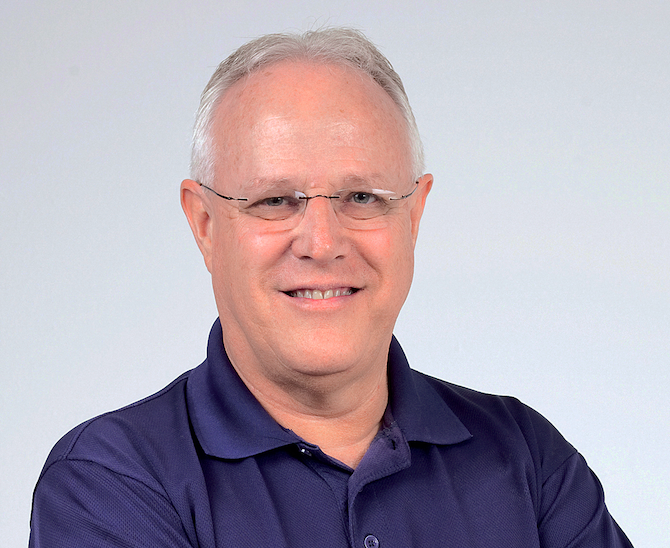
Chris is an internationally respected energy analyst, consultant and electrical engineer. He is considered an expert on the South African energy market.
Disclaimer: The articles expressed in this publication are those of the authors. They do not purport to reflect the opinions or views of Green Building Africa, our staff or our advertisers. The designations employed in this publication and the presentation of material therein do not imply the expression of any opinion whatsoever on the part Green Building Africa concerning the legal status of any country, area or territory or of its authorities.








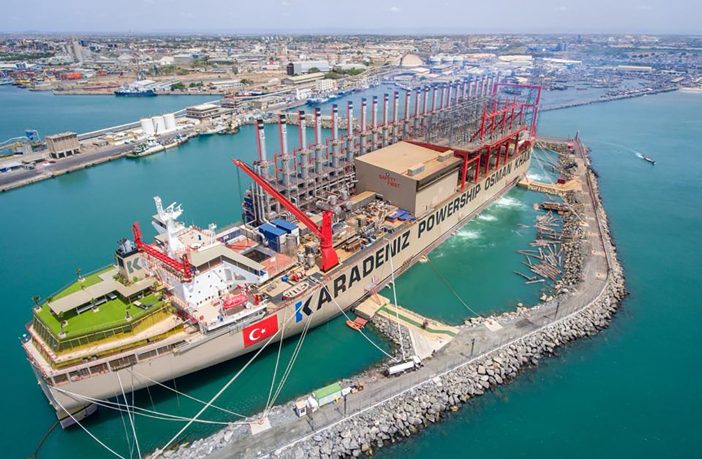
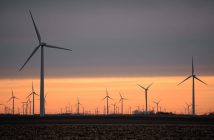
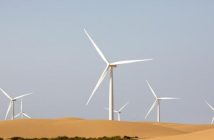
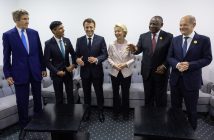
1 Comment
Having been involved in the REIPP program in South Africa for close to 20 years, I am deeply disturbed that a program that was once a Global show point, a track for others to follow, is now reduced to just another ANC cadre money making scam.
The projects should never have been given preferred bidder – not based on cost, not based on Emergency timelines, not based on environmental concerns and cerainly not based on the needs of South Africa.